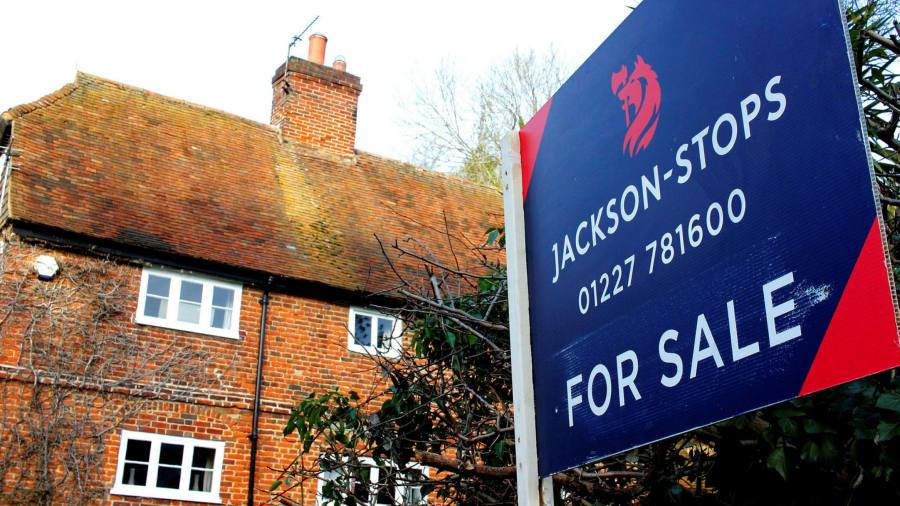[ad_1]
Hundreds of thousands of homebuyers are set to save up to £15,000 after Rishi Sunak extended the stamp duty holiday for six months, in a move set to cost the Treasury more than £1.6bn in lost receipts.
The chancellor said he had taken the decision in part to ease a logjam in deals that had built up as the original end of March deadline for the expiry of the tax break loomed.
He said the measure — introduced last July for buyers in England and Northern Ireland as part of a coronavirus stimulus package — had “helped hundreds of thousands of people†buy a home.
Sunak said it had supported the economy “at a critical time†but added that “due to the sheer volume of transactions we’re seeing, many new purchases won’t complete in time for the end of Marchâ€.
The exemption means that buyers pay no purchase tax on the first £500,000 of a property’s value — up from a previous threshold of £125,000. The chancellor said he would extend the tax break on those terms until June 30. After that, the threshold for paying the tax will be moved down to £250,000 until the end of September.
But rolling on the holiday will come at a cost. The Treasury estimated it would lose a further £1.6bn in revenues, on top of a £3.3bn hit from the original holiday.
The decision is a victory for estate agents who had warned that thousands of deals would collapse because they were in danger of missing the original end of March deadline. But analysts cautioned on Wednesday that the extension risked moving the cliff-edge to later in the year.
At least 230,000 buyers who were set to miss the original March 31 deadline should now qualify for the exemption, according to property platform Zoopla.
Richard Donnell, research director at Zoopla, warned that the backlog was so high that anyone agreeing to a property purchase from March onwards could still miss out on the June deadline.
The maximum stamp duty saving is currently £15,000 but will drop to £2,500 when the threshold is lowered to £250,000 from the end of June.
As well as spurring demand, the tax break has pushed up UK house prices, which have risen on by an average of more than £10,000 to £231,068 since it was introduced, according to building society Nationwide.Â
Roarie Scarisbrick, a buying agent, said the extension would “keep the cogs of the market turning but sadly mostly at the expense of the buyers, who are paying multiple times the saving they are supposed to be thankful forâ€.
Marc Vlessing, chief executive of Pocket Living, a small builder, said the extension made sense “in the short term but is pushing up prices and making it harder for first time buyersâ€.Â
Some property analysts have questioned whether the housing market needs a further stimulus, given sales and prices are at record levels.
Industry warnings that a premature withdrawal of the stamp duty holiday would cause sales to collapse have been undermined in recent weeks by data that give an indication of the health of the market beyond March 31.Â
Housebuilders, which agree to sell homes many months in advance of completing them, have reported strong demand. Speaking ahead of the Budget, Pete Redfern, chief executive of FTSE 100 developer Taylor Wimpey, said the sector did not need more government support.Â
“We’ve been selling well beyond the stamp duty deadline for a while. The only reasonable extension would be a few weeks, to allow people to compete on the terms they expected to. I don’t think a longer extension is necessary,†he said.
[ad_2]
Source link





